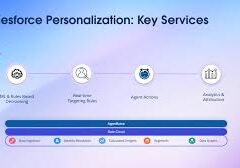The software engine, Optimus Prime (not to be confused with the Autobot leader), originated in a basement beneath a West Elm furniture store on University Avenue in Palo Alto. A group of artificial intelligence enthusiasts within Salesforce, seeking to enhance the impact of machine learning models, embarked on this mission two years ago. While shoppers checked out furniture above, they developed a system to automate the creation of machine learning models. Thus Salesforce’s Quest for AI for the Masses started.
Despite being initially named after the Transformers leader, the tie-in was abandoned, and Salesforce named its AI program Einstein. This move reflects the ambitious yet practical approach Salesforce takes in the AI domain. In March, a significant portion of Einstein became available to all Salesforce users, aligning with the company’s tradition of making advanced software accessible via the cloud.
Salesforce, although now an industry giant, retains its scrappy upstart identity. When the AI trend gained momentum, the company aimed to create “AI for everyone,” focusing on making machine learning affordable and accessible to businesses. This populist mission emphasizes practical applications over revolutionary or apocalyptic visions.
Einstein’s first widely available tool is the Einstein Intelligence module, designed to assist salespeople in managing leads effectively. It ranks opportunities based on factors like the likelihood to close, offering a practical application of artificial intelligence. While other tech giants boast significant research muscle, Salesforce focuses on providing immediate market advantages to its customers.
Einstein Intelligence
The Einstein Intelligence module employs machine learning to study historical data, identifying factors that predict future outcomes and adjusting its model over time. This dynamic approach allows for subtler and more powerful answers, making use of various data sources beyond basic Salesforce columns.
Salesforce’s AI team strives to democratize AI by offering ready-made tools, ensuring businesses can benefit from machine learning without the need for extensive customization by data scientists. The company’s multi-tenant approach, serving 150,000 customers, keeps each company’s data separate and secure.
Salesforce’s Quest for AI for the Masses
To scale AI implementation across its vast customer base, Salesforce developed Optimus Prime. This system automates the creation of machine learning models for each customer, eliminating the need for extensive manual involvement. Optimus Prime, the AI that builds AIs, streamlines the process and accelerates model creation from weeks to just a couple of hours.
Salesforce plans to expand Einstein’s capabilities, allowing users to apply it to more customized data and enabling non-programmers to build custom apps. The company’s long-term vision includes exposing more of its machine learning system to external developers, competing directly with AI heavyweights like Google and Microsoft in the business market.
Originally published in WIRED magazine on August 2, 2017 and rewritten for this insight.














